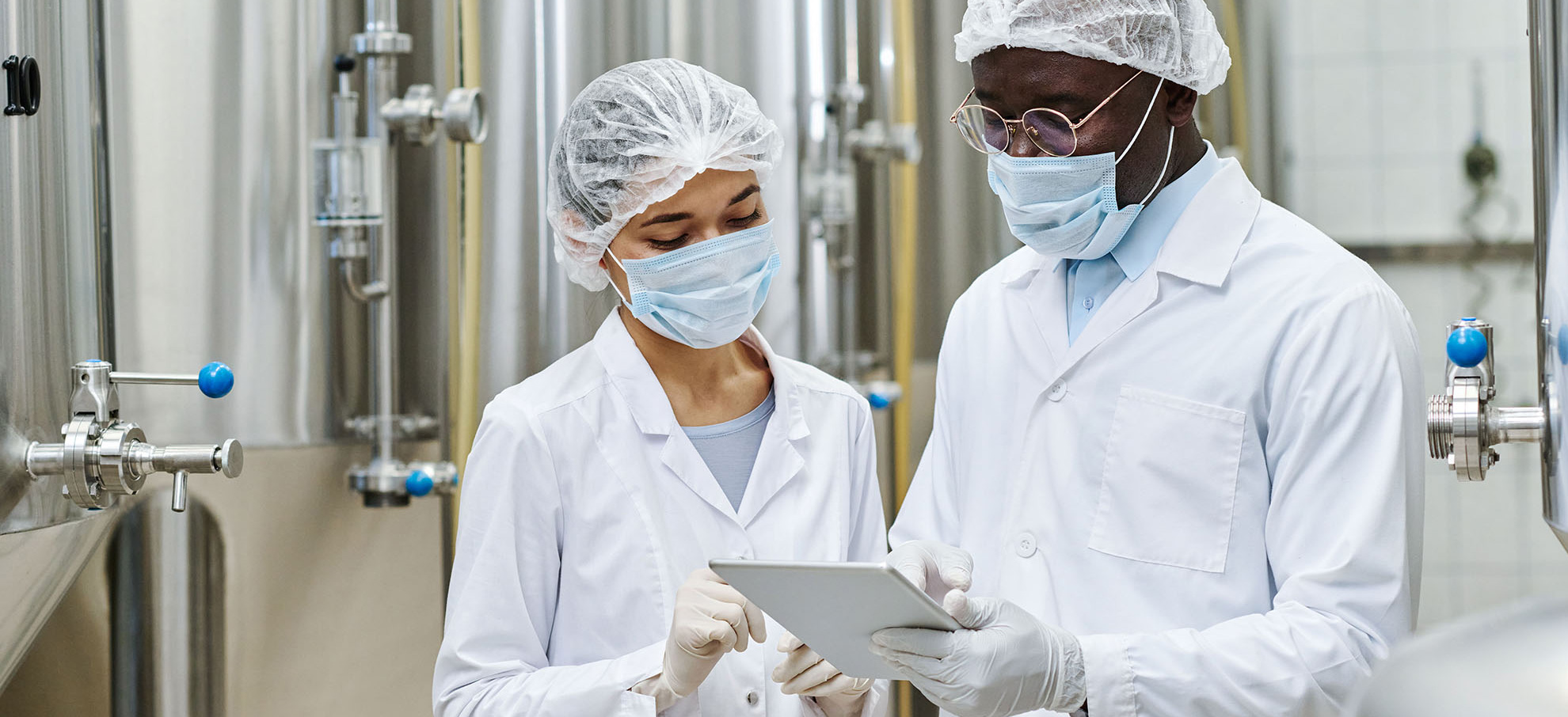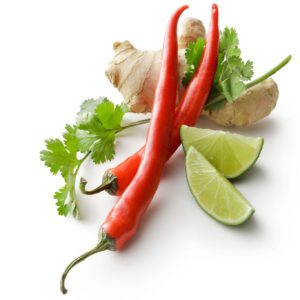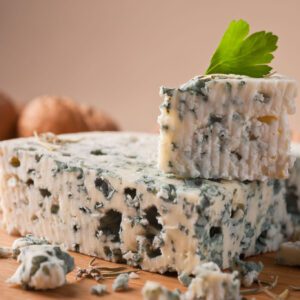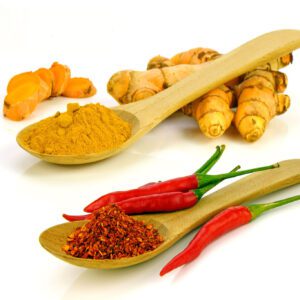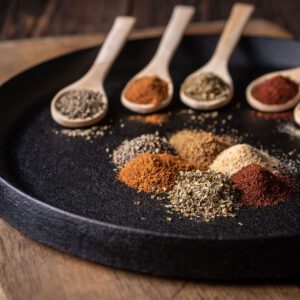As anyone working in the food industry will know, the FDA has strict regulations in place that are designed to keep consumers safe. However, beyond these basic regulations, there are also good manufacturing practices in the food industry that manufacturers can follow to improve customer experience.
Let’s explore a breakdown of the basic food safety and purity standards and what manufacturers can do to stand out.
Food Safety and Purity for Manufacturers
Food Safety Modernization Act
Food manufacturers who were around for it likely remember the 2011 Food Safety Modernization Act and how it overhauled the regulations they have to follow to ensure customer safety.
According to 2011 statistics from the Centers for Disease Control and Prevention (CDC), 48 million people get sick from foodborne illnesses each year. Of that, 128,000 are hospitalized, and 3,000 die—all from largely preventable illnesses. The goal of the law is to prevent so many people from getting sick, and some of the required measures include:
- Monitoring the quality of water used to grow produce
- Oversight and prevention of food safety hazards, such as heat-treating to kill pathogens
- Labeling foods that may have come into contact with common allergens, such as peanuts, shellfish, and wheat
- Oversight of ingredients and distributors within the food manufacturer’s supply chain, including written recall plans
- Use of specialized equipment during transportation to keep food products at safe temperatures

However, if food manufacturers want to go the extra mile in showing their commitment to safety, there are additional steps they can take as well. For example, some manufacturers might choose to use barcode scanning to demonstrate where their products originate. Others might choose to add QR codes that customers can scan to see where their food comes from or include that information right on the packaging for different lot numbers.
By putting this commitment to safety and transparency at the forefront of company culture, manufacturers can provide peace of mind to their customers. This ultimately leads to more return customers and higher profitability.
Best Manufacturing Practices
Current Good Manufacturing Practices (CGMPs) are a set of mandatory requirements in the food processing industry that are designed to protect customers and make the products we eat every day safer. The FDA first developed these regulations in 1969. However, they were updated in 2015 to reflect more current needs in food processing.
While there are dozens of strict regulations in place for everything from food processing to pharmaceuticals and imported goods, here are just a few of the good manufacturing practices in the food industry that must be followed:
- Rooms and work areas where products are produced or stored are to be kept orderly, clean, and free of dirt, vermin, and any objects not required for the manufacturing process.
- Equipment must be sterilized to a temperature of 121.5 degrees Celsius for 20 minutes with saturated steam or 170 degrees Celsius for two hours with dry heat.
- Animal quarters and food storage areas need to be fly-proofed, have adequate light and ventilation, and be sanitary and free of vermin, such as insects or rodents.
There are numerous other requirements for everything from working with spore-forming organisms to live vaccine processing.
CGMPs are mandatory, but great food suppliers can do even more to ensure the health and safety of their customers. Butterball® Farms goes a step beyond these CGMPs to meet some of the highest quality standards for our food industry customers, earning us a BRC-AA rating from BRC Global Standards.
In addition to keeping your business up to date with good manufacturing practices in the food industry, following these CGMPs and choosing suppliers in good standing with BRC Global Standards ultimately helps your business’s bottom line. It also has a ripple effect—by keeping up with these practices on your end, you also help your distributors make more money by keeping their business streamlined, and you help keep your customers safe.
Product Innovation with Food Manufacturing Supply Companies
Food-savvy customers are always looking for innovations and trends from food manufacturers. This extends beyond the food product itself and can include everything from packaging to food safety.
For example, some food manufacturers are starting to reflect on their ecological footprint. In turn, they’re innovating with packaging that requires less plastic to produce while keeping the food fresh, or using packaging that is easier to recycle. Others are using technology to pasteurize food with supercritical carbon dioxide, making it easier to extend shelf life while reducing energy consumption.
However, there are also opportunities to innovate with the product itself. Customers on the whole are becoming more conscious about preservatives and additives in their food. In turn, more and more food manufacturers are turning to natural ingredients and dyes such as paprika and turmeric in place of synthetic food coloring.
Using Custom Ingredients and Flavors
Another way food manufacturers can stand out from their competitors is by offering a wider variety of flavor experiences to their customers. For example, by working with Butterball Farms on custom food manufacturing solutions, our customers have been able to stay on top of trends and offer a more personalized flavor experience for their end users, all with an ingredient as ubiquitous as butter.
Here are some of the custom flavored butters we’ve developed with our food manufacturing customers:
These are just a few examples. We’ve developed dozens of customized flavor options for food manufacturers, and we’re always looking for new ways to help our customers come up with their own unique custom flavored butters.
Customization Opportunities for Food Service Distributors
Butterball Farms offers endless opportunities for creating custom food ingredients with unique flavor profiles. This allows your products to stand out from the competition. It also provides your customers with a better flavor experience, meaning they’re more likely to keep coming back for more.
We are proud to work with food manufacturers to develop custom flavored butters, sauces, aiolis, and more to keep the product innovation rolling. These custom ingredients have helped manufacturers increase basket rings at supermarkets and grocery stores, returning customer rates, and satisfaction ratings.
In addition, we also provide both dairy and non-dairy food manufacturing sauces, meaning food manufacturers can offer vegetarian-friendly options to their customers. They’re available in a variety of formats, including bulk packaging and pre-portioned. In particular, pre-portioned is great for manufacturers because it allows the butter to be easily inserted into fresh or frozen packages with limited disruption to the manufacturing process.
Choose Butterball Farms for Custom Ingredients
Chances are, you’re already following a lot of the basic requirements for keeping your customers safe. However, there are still opportunities you can take to stand out.
Whether you’re interested in one of the flavors we already have available, or you’d like to create your custom butter flavor or sauce for your recipes, we can help. Contact us today to see how we can help you come up with new flavor profiles, custom branded packaging, and more.

